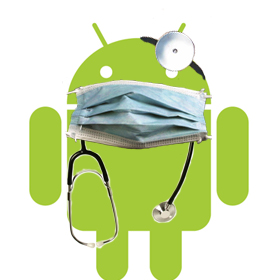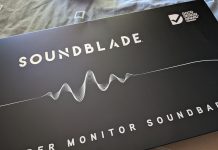
The Qualcomm Foundation – the philanthropic arm of chip-maker Qualcomm – is sponsoring an X Prize competition aiming to stimulate innovation in the medical world. The Tricorder X Prize, like its Star Trek namesake, asks us to envisage usage of portable, wireless devices like smartphones that monitor personal health and diagnose medical conditions. It’s hoped that this will allow unprecedented access to personal health metrics, giving individuals greater choice in when, where, and how they receive care.
It’s a lofty goal, and it’s the very definition of altruistic – perhaps to a fault, especially when I’m sure at the end of the day the technology is not going to be cheap, but X Prize competitions have always seemed more concerned with the technological achievement first and commercial realities second. You can read more about the competition at the competition website but it seems – unsurprisingly – that the lure of a 10 million dollar prize has incentivised a number of companies to enter the fray. One of the recently-announced finalists is using an Android handset as the core of their entry.
Mesi Medical, one of ten finalists in the competition, is using a “medical grade wrist band” connected via Bluetooth. Think of it as a FitBit on steroids. The wrist band connects to an associated Android app and is able to monitor a patient’s vitals, including heart rate, blood oxygenation, blood pressure, respiratory rate and temperature. It also includes the usual sleep monitoring activities that other wrist-worn fitness trackers provide.
The app uses algorithms to help diagnose a patient’s condition, much in the same way a doctor of medical professional will also rule out causes of symptoms to arrive at a diagnosis. It will then recommend whether the patient needs to see a doctor or not.
The X Prize competition rules say that the entries must be able to diagnose a number of conditions that require extra modules and probes, such as an ear bud. Mesi has developed some additional modules to satisfy that need, and these get their data to the phone via the wrist band as well.
Finally, the wrist band makes remote monitoring of a patient’s condition possible. While they are undergoing therapy or treatment, a doctor can monitor the patient’s vitals without them having to be admitted to a hospital.
The choice of Android as the platform for Mesi’s solution is a welcome decision – Android often misses out in favour of iOS for medical products and software, and this kind of at-home diagnosis is well suited to the platform thats going to get the next billion people online, especially in developing nations.
While the solution should not take the place of a doctor or medical professional, it’s something that may prevent unnecessary medical visits. The product shows that innovation in the Android ecosystem is well and truly alive.
Could you see yourself using a system like this in the future? Would you trust an automated diagnostic tool? Tell us in the comments!







My wife suffers from epilepsy, Parkinsons, and is waiting for a second heart ablation for AF. She has a VNS fitted. She has “petit mal” type of seizures (I’ve never been able to get my head round the “medically correct terms”) and gets no warning of seizures, so it is difficult to monitor the frequency and number. In terms of the AF, we have no idea as to whether or not the condition is changing. Such a device would enable me to assess whether or not to contact her specialists at the various hospitals she attends, and also to provide… Read more »